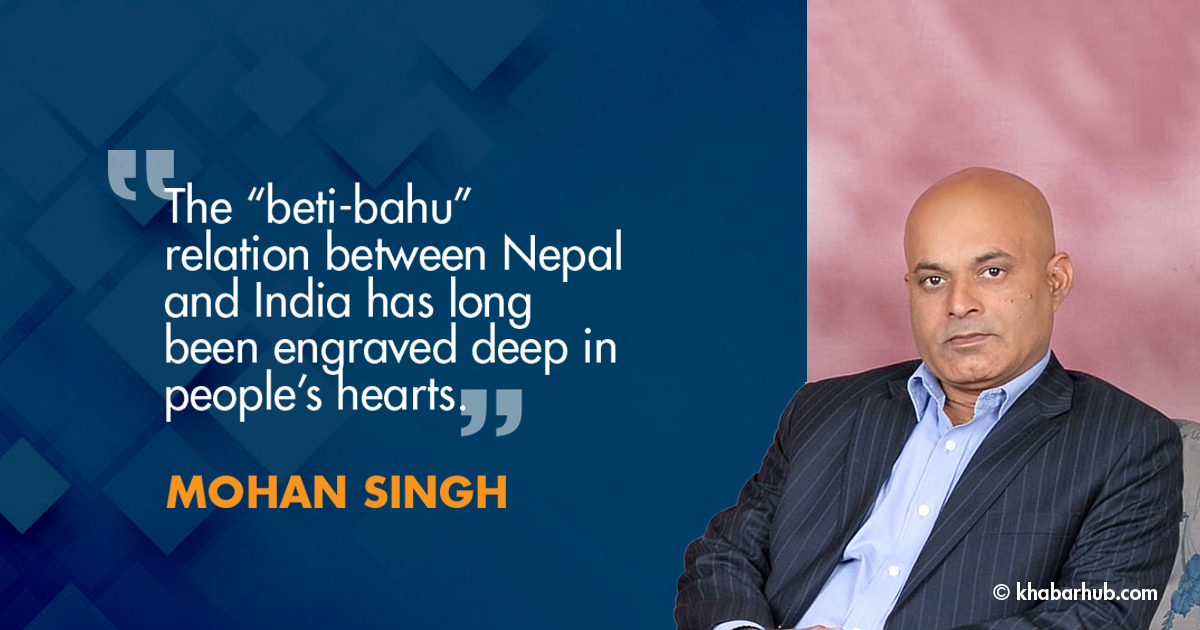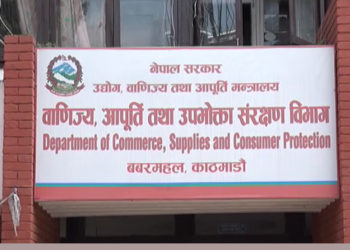The Covid-19 pandemic that has crippled most parts of the world has left behind numerous stories to be told and passed onto future generations while it is still a long way to continue with a normal lifestyle.
The unseen virus that plagued human lives forcing the governments to impose months-long lockdown and making physical distancing a rule to keep oneself safe equally gripped India and Nepal — South Asia’s close neighbors.
Amid all the miseries and loss of human lives, two sovereign nations sharing open borders and unrestricted movement of people across witnessed the unfolding of many beautiful and common stories to be shared with the rest parts of the world.
These human stories would always pave the way to better the relations between the two countries as those in corridors of power have been fast realizing how intrinsic are the relations that would automatically lend harmonious and helping hands if one of the two countries needs a healing touch.
The recent Nepal visit of Indian Army Chief, General Manoj Mukund Naravane at a time when the bilateral relations are obviously not at their best is a new beginning that would pave the way forward to realize that the two countries cannot do without each other.
The cry of helpless stranded people on both sides of the borders, meeting emergency medical needs had to be addressed at any cost.
The visit of the Indian General who was conferred the honorary rank of General of the Nepali Army by Nepal’s President Bidya Devi Bhandari has come at a time when the India-Nepal relations have hit the rock bottom since 2015.
The last five years, many political observers believe, could have been used for constructive purposes had both the countries found out a mechanism to mutually sort out the issues including border issues after Kathmandu approved a new political map despite India’s vehement opposition.
The acrimonious relation continued despite Covid-19 lockdown providing opportunities to those eyeing to fish in troubled water.
However, one needs to look out of the old political prism and see forward to how important the role India as a bigger and stronger nation could play that ultimately would take the Himalayan nation to a better position.
The untold stories of Parsu Baskota, Ganesh Yadav, Mohammed Kalam Ansari and Ranjan Chakraborty come as examples of how strong the bonds between the two nations are and how infallible they are.
Even as the entire world was passing through its worst phase of pandemic, there were certain things which must have been performed at any cost across India-Nepal borders.
Returning back to their own homes to be amongst dear ones, procuring essential commodities including life-saving medicines were few things people wanted to do despite lockdown that literally closed the Indo-Nepal borders.
The cry of helpless stranded people on both sides of the borders, meeting emergency medical needs had to be addressed at any cost.
Otherwise, it would have become difficult to keep account of the loss of human lives and their misery.
Here it becomes all-important to listen to the stories of simpleton folks like Yadav from Bihar, Ansari from Uttar Pradesh and Chakraborty from Kolkata, West Bengal in India and Baskota from Damak in Nepal.
This would redefine the people-to-people relation between the two countries in the worst crisis.
The “beti-bahu” relation has long been engraved deep in people’s hearts. It was scorching heat and a humid day in May when the lockdown was at its peak.
There was virtually no movement of people across Panitanki-Kakarvitta and Jogbani-Biratnagar border check posts.
However, the likes of Yadav continued to help to run the wheels on both sides of the border.
Driving his truck from Bhutan to Nepal via Panitanki border in West Bengal (a special arrangement allowed by India), Yadav used to help carry the life-saving medicines from Panitanki and deliver them to those in need in Nepal.
While returning from the Jogbani border, he helped carry essentials from Nepal for Indian counterparts.
Somehow Indian people used to reach the Panitanki border carrying medicines meant for people across the international border.
They handed over the medicines to the truck drivers like Yadav who turned out to be good Samaritans.
Chakraborty, a medicine shop owner from Kolkata never took a backseat when the question of supplying medicines to their regular customers back in Nepal arose.
No matter whether they got their money through bank transfer or not, they ensured that the medicines reach those in need in Nepal by the next day.
Chakraborty received orders via WhatsApp. The Nepalese were equally honest to ensure that the money reached the hands of Chakraborty on time.
How could I deny medicines to those ill people in Nepal during their worst time when they had always been my loyal customers, Chakraborty says.
Ansari, a daily wage earner stranded for months in Nepal’s Ithari, had to reach home at any cost, as his father expired.
However, the border was closed and there was no way for him to get out of Nepal. Local journalists of both countries used their best offices and made humanitarian requests to both the Sahastra Seema Bal and Nepal Border Police to make an exception.
Ansari reached home in three days and called from there to thank all, including those who had given him food and shelter for months in Nepal.
Nepalese firmly believe that the largest democracy of the world would continue to respect the sovereignty of Nepal and does its best as a neighbor to help the tiny and beautiful country to move ahead.
Baskota’s son working in Jorhat, Assam had suddenly died. A car was sent to the Indo-Nepal border to carry him to Assam to attend his son’s funeral.
However, there was no chance for him to cross over as the border was sealed.
There were strict Covid 19 protocols to be followed and no one dared to take the risk of violating.
However, humanity and age-old bilateral relations again came into play. Senior officers of both the countries prevailed and Baskota was allowed to be with his son during his last journey.
The two closest neighbors need to remain so, no matter what transpires in between.
Leaders come and go but institutions, countries remain, and the visit of India’s army general to Nepal and the warm welcome he received and fruitful discussions he had in Nepal would only cement the age-old relationship between the two countries.
This is the beginning of a new dawn in the last five years. The recent efforts on part of India to live up to the expectations of its closest neighbor have largely helped to improve the bilateral relation.
Nepalese firmly believe that the largest democracy of the world would continue to respect the sovereignty of Nepal and does its best as a neighbor to help the tiny and beautiful country to move ahead.









Comment